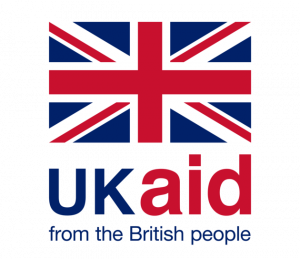Research on Increasing Transparency on Sexual Exploitation, Abuse and Harassment in the Aid Sector
All aid NGOs should be encouraged to report sexual exploitation, abuse and harassment (SEAH) when it occurs. Currently there is under-reporting of incidents where people affected by crisis are abused by the very people meant to support them. Even when cases are reported, each NGO working in aid has their own way of recording this information, and not all NGOs make these reports public.
More and better quality of SEAH data would mean that we are able to analyse and identify the scale of the problem, as well as the main exploitation and abuse issues that the aid sector needs to confront.
To tackle this problem, CHS Alliance and the Steering Committee for Humanitarian Response (SCHR) have started to explore taking a standardised and comparable approach to collecting data on SEAH incidents in aid work. The first step was GCPS Consulting’s 2021 research report Increasing Transparency on Sexual Exploitation, Abuse and Harassment in the Aid Sector.
Key findings from the report:
- Currently aid NGOs do not take a common or comparable approach to collecting and reporting information on cases of sexual abuse, exploitation, or harassment (SEAH) that occurs in the course of their work. Organisations are using very different reporting systems and so information is not available or useful for analysis to better understand the extent of SEAH in aid work.
- The current arrangements of NGOs reporting different SEAH information to different donors can lead to challenges in maintaining confidentiality of the people involved.
- Humanitarian and development organisations are willing and open to taking a harmonised approach to SEAH reporting. Generally, study participants agree that a more harmonised approach to data collection and reporting on SEAH incidents would bring many advantages, if set up with a clear purpose and scope, together with an inclusive approach.
- Initial principles for a harmonised SEAH in aid reporting system were identified as:
- Protection of victim/survivor
- Confidentiality and data protection
- Inclusivity
- Common definitions
- Simplicity
- Transparency
- Accountability
Following the recommendation from the report and wide-consultation, CHS Alliance and SCHR worked with more than 60 international and national NGOs as well as private sector organisations to develop a draft harmonised framework to collect harmonised forms of SEAH data.
Next steps:
No one organisation can overcome problem of SEAH in isolation. To root out unacceptable behaviour in aid work, everyone must engage with creating transparent and effective systems to prevent and protect people affected by crises.
CHS Alliance and SCHR, together with more than 15 organisations, will start to test the draft framework on the ground from late 2022.
We now need as many aid organisations as possible to engage with CHS Alliance to test and refine this draft harmonised framework on SEAH data collection and reporting. We aim to adjust, improve and finalise the harmonised framework in mid-2023.
To engage in this vital project and test the draft harmonised framework in your work, email our PSEAH Manager Coline Rapneau.
This project is funded with UK aid from the UK government.

